






| Blackbird (Turdus merula (Linnaeus, 1758)) |







|
|
Scientific name: Turdus merula (Linnaeus, 1758) Common name: Blackbird French name: Merle noir Order: Passeriformes Family: Turdidae Size: 24 to 25 cm, 80 to 110g Habitat: Forests, woodlands, parks et gardens. Food: Insects and worms picked on the ground, berries in autumn and in winter. Nesting: The Blackbird builds its nest with mud, twigs and roots. It is often located in a bush or in a wall climbing plant (Ivy). The female lays 3 to 5 eggs, 2 to 5 times between March and July. Migration: Resident, northern birds move to the south in winter. Geographic area: All Europe except northern Scandinavia, Asia. |
The male is black. The eye-ring and the bill are bright yellow, especially at the end of winter and during the mating period. Females and juveniles have brown plumage. Birds with a black plumage and a dark bill are young males in their first year. The Blackbird whistles. You can easily identify its various and melodious song. It can also issue a typical alarm rattle in case of danger. |
| [To know more about the Blackbird] [Next picture] [Top] |

|
Male landed on my neighbour's cherry tree. Every years you can find, in my garden, three or four blackbird's nests. |
| [To know more about the Blackbird] [Next picture] [Previous picture] [Top] |
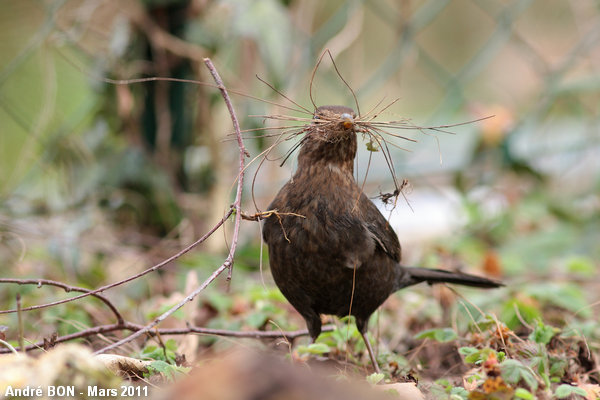
|
They have started building the nest! |
| [To know more about the Blackbird] [Next picture] [Previous picture] [Top] |
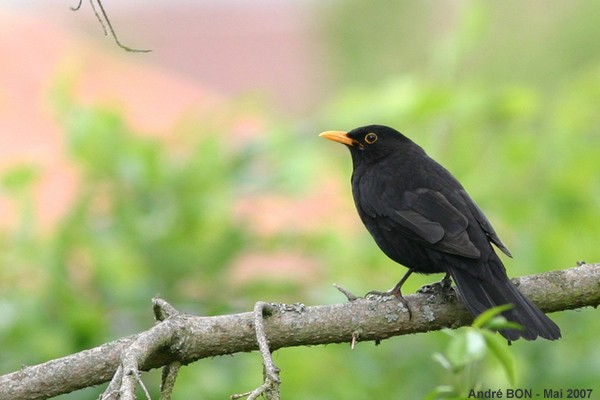
|
With the Rufous Nightingale, the Blackcap and the Song Thrush, the Blackbird is one of the best singers in our parks and gardens. |
| [To know more about the Blackbird] [Next picture] [Previous picture] [Top] |
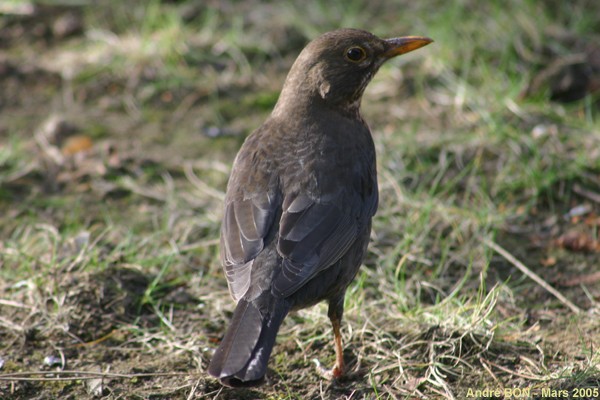
|
I attract blackbirds with breadcrumbs in front of the kitchen's window. The colour of the bill, of the eye-ring and of the plumage shows that this is a young male. |
| [To know more about the Blackbird] [Next picture] [Previous picture] [Top] |
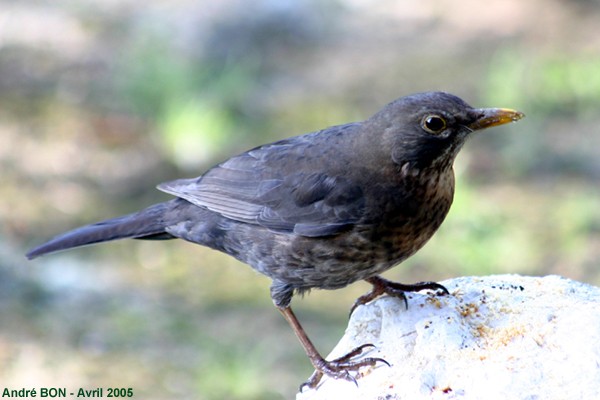
|
Here is the same bird which is now used to coming here. I slightly improved the scenery by putting the breadcrumbs on a big stone. |
| [To know more about the Blackbird] [Next picture] [Previous picture] [Top] |
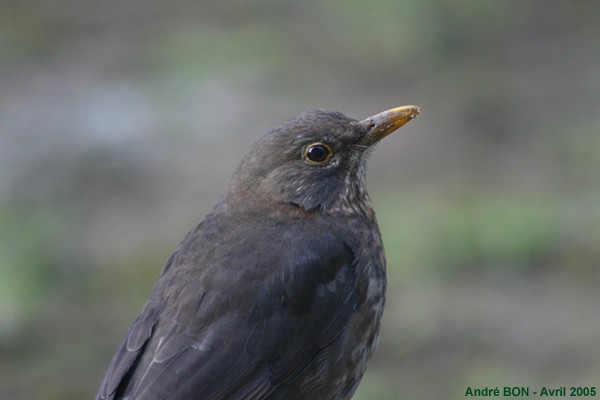
|
Close view. Is the photographer observing the bird or is the bird observing the photographer? |
| [To know more about the Blackbird] [Previous picture] [Top] |
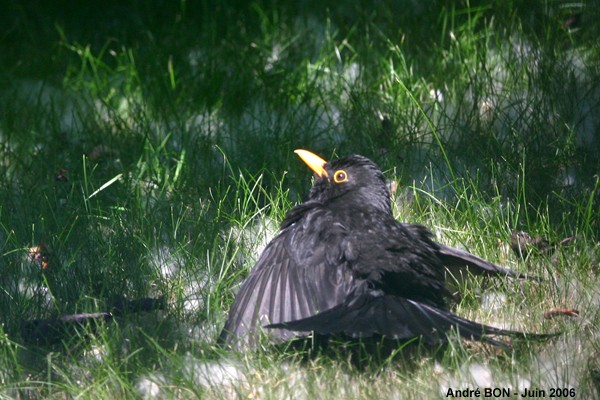
|
I thought that, in case of very hot weather, the blackbirds would stay in the shadow of dense vegetation. This one preferred to have a sun bath with its wings wide open. It was difficult to approach and after several miss I took the picture through a double-paned glass window. |